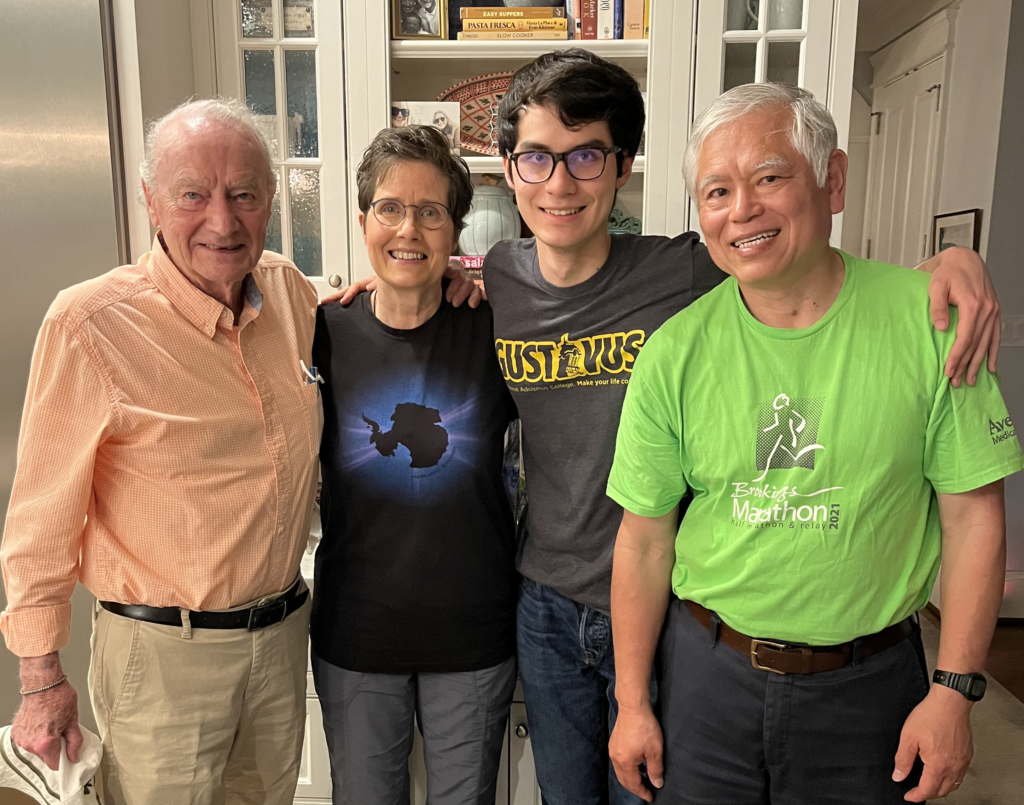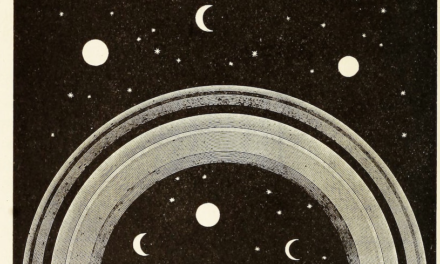Don is a 90-year-old retired firefighter. He lives in a condo on the 10th floor of an apartment
building in a bustling suburb of Washington, DC.
Five years ago, Don sent me an email—a stranger contacting me out of the blue. He told
me that he and his wife Lou, who was in declining health, deeply appreciated the daily
mindfulness poems I was posting on A Year of Being Here. Every morning, at Lou’s bedside, he
would read that day’s poem with her, and sing to her, strumming his guitar.
When Lou passed six months later, Don wrote me again to express his gratitude. By then, he’d
read more of my published work, and he had lots of questions. Of course, I was happy to
answer them. (Or, at least, to try.)
Somehow, those initial exchanges turned into a regular correspondence. A true and reliable
friendship developed between us, full of banter, storytelling, and serious discussion.
This spring, while planning an early summer vacation, my family decided we’d like to visit
Washington, DC, more than 1,300 miles from our home.
“Any chance you’d actually like to meet in person?” I asked Don.
Okay. Maybe that was a silly question.
In reply, Don insisted that, while in DC, we must absolutely stay at his apartment. He would
temporarily lodge at his daughter’s house, ten minutes away.
That invitation—or command—was so very “Don.” You see, he’s a guy who keeps breaking the
Kindness Meter. Just when you think you’ve got it fixed, he does something else that makes it
go haywire.
As May rounded into June, our family occupied Don’s castle for a week. That was enough time
for my husband, Jihong, normally no gusher, to declare Don a “saint.” (Got him fooled, don’t
you, Don?)
At 90, Don is still driving expertly around DC, nurturing other people with what he himself is
nurtured by: faith, music, poetry, flowers, stories, jokes, hugs … and let’s not forget shrimp
scampi. These are all forms of careful, kindly attention. They act like glue, bonding him with
practically everyone he encounters. Everybody seems to stick.
I should know. It happened to me.
(I call him “Da Preacha.” He calls me “Da Kid.”)
Don’s “clan” is therefore enormous. At its center is his big-hearted family, whose own welcome
of Jihong, Nathan, and me shattered the Kindness Meter. It radiates out from there. I suspect it
includes the entire world. The world just doesn’t know it yet.
But now you know.
So, if you see a wiry 90-year-old Irish Catholic retired firefighter headed your way, toting his
guitar and spouting blarney, just stop where you are and open your arms. He’ll grab you up in a
hug, or shake your hand, if you’d prefer.
Either way, you’ll stick, too.
At the end of our week in DC, Don helped my family load up our car. Then came that heavy
pause that often precedes a hard goodbye. We shared one last round of hugs and words of
endearment, a few tears, promises to stay well, to remain in touch, and to be together again
someday.
What Don didn’t know was that a gift was waiting, back in his apartment.
In intervals of quiet during our visit, I’d been working on a wee poem. (We didn’t have much
quiet in DC. “Wee” was the best I could do.)
The night before our departure, I inscribed the poem on a piece of thick paper. I numbered its
title and lines, then cut it apart and hid the numbered excerpts around Don’s cozy apartment.
In the thank-you card our family left him, I invited Don to gradually find and reassemble the 11
pieces of the poem I’d composed. “This isn’t meant to be a scavenger hunt,” I suggested.
“Stumble onto its lines over time. Let the poem emerge.”
That suggestion was a complete waste of ink.
He soon let me know that he’d located a line of his poem between the strings of his guitar.
Among the leaves of his potted shamrock. In a “friendship” coffee mug. Attached to a photo of
his family. Resting by one of his fresh Esperanza roses. (Esperanza, in Spanish, means “hope.”
He’s always buying Esperanzas by the stem, mostly to give away.)
Now, though, he was stuck. Where might he find the last few pieces?
I refused to provide any clues, making him “suffer.”
He decided to complete the poem by substituting his own lines for the missing ones. He
emailed me the result.
Not bad, I thought, grinning at our now collaborative poem.
That softened me up a bit. I gave him a couple of hints.
Perched atop his step stool, he discovered the final piece in his pantry, near one of his favorite
libations. (Pretty mean of me, you’re probably thinking, and risky for his 90-year-old bones. In
my defense, I’d propped the slip of paper within easy reach. It just didn’t stay where I’d put it.)
Don has now taped together the entire poem. The title at the top?
“Esperanza.” Hope. You know—that abiding love for life that blooms even within our
melancholy, over and over again. A love for life that springs from devoted attention.
Thank you for yours, Preacha.







